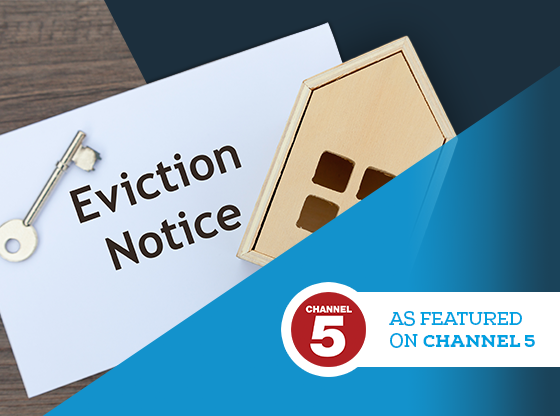New Legislation For Renting With Pets
The government’s model tenancy agreement has been updated to allow tenants to keep pets by default. Meanwhile, the proposed Renters Reform Bill is awaiting Parliament approval.
The Renters Reform Bill white paper has announced changes that will make it easier for tenants to keep pets, including giving tenants the right to request a pet and allowing pet insurance as a permitted tenant payment. Currently, the Tenant Fees Act 2019 prevents landlords requesting certain fees and caps the amount of a tenancy deposit that can be requested.
Tenants currently renting with pets
In 2020, only 7% of landlords advertised their property as suitable for pets (GOV.UK). With such a small proportion of pet-friendly rentals, some tenants have no choice but to give up their pets.
Before the enactment of the Tenant Fees Act 2019, many landlords allowed pets, while simply increasing tenancy deposits to mitigate potential damage. With deposits in England limited to 5 weeks’ rent, landlords no longer have this option.
In Wales and Scotland, landlords can request an additional deposit for pets, on top of the tenancy deposit, to cover any damage caused by animals.
New pet insurance amendment to Tenant Fees Act 2019
In the government’s Renters Reform Bill white paper, it is proposed to “legislate to ensure landlords do not unreasonably withhold consent when a tenant requests to have a pet in their home, with the tenant able to challenge a decision”.
The Tenant Fees Act 2019 will also be amended to all pet insurance as a permitted payment. This means landlords will be able to require the tenant to obtain pet insurance so that any damage to their property is covered.
The government says they will encourage a “common-sense approach” and believe that “alongside greater security and quality, these measures will help tenants truly feel like their house is their home”.
Dogs and Domestic Animals Accommodation Protection Bill
The proposed Dogs and Domestic Animals Accommodation Protection Bill is designed to help responsible pet owners find suitable rental properties.
MP Andrew Rosindell, sponsor of the bill, says:
“For most people, being separated from their dog is no different from being separated from their brother or sister”
“Sadly, pet owners who move into rented accommodation face the reality that their family could be torn apart, because most landlords in Britain have unnecessary bans or restrictions on pets ownership.”
Prioritising animal welfare – certification for pet owners
Although the bill hopes to help responsible renters, its focus is the protection and welfare of domestic animals. As well as giving tenants the right to keep pets in their rental property, the bill proposes pet owners have a certificate of responsible animal guardianship.
Certificates will be issued subject to a responsible ownership test, conducted by a registered vet, including:
- Microchipping (for dogs and cats)
- De-worming and de-fleaing
- Required vaccinations
Ability to respond to basic commands
The bill also proposes that all information regarding an animal and its ownership be entered into a database – including mandatory microchipping for all dogs and cats.
Exemptions to the pet bill
If the proposed bill goes ahead, tenants will not have an unconditional right to keep a pet.
Tenants can’t have a dog or domestic animal unless they hold a responsible animal guardianship certificate and can care for the animal. If living in the rental accommodation puts the animal at risk, or causes danger or nuisance to people nearby, they will not be permitted.
Certificate of exemption for renting with pets
If the bill passes, landlords may also restrict their tenant’s right to keep dogs or domestic animals if they hold a certificate of exemption.
Such certificates may be issued if:
- The landlord or another tenant has a religious or medical reason not to come into contact with a dog or domestic animal
- The accommodation is unsuitable for the animal
- Certificates of exemption may be provided for:
- Groups of dwellings within a building or area
- Entire buildings
- Specific orders, families, species or breeds of animal
If a landlord doesn’t want their tenant to have a pet, they must object in writing within 28 days of a written request from the tenant. The landlord must provide a good reason, such as in smaller properties where owning a pet would be impractical.
Despite the change to the model tenancy agreement, properties can still be advertised as ‘no pets’ or ‘no pets considered’. The update just means that tenants in-situ can put forward a written request to keep a pet to the landlord, and the landlord has 28 days to object with a good reason.
Tenants will still have a legal duty to cover the costs of any damage caused by pets.
Housing Minister Christopher Pincher MP said:
“We are a nation of animal lovers and over the last year more people than ever before have welcomed pets into their lives and homes.
“This [change] strikes the right balance between helping more people find a home that’s right for them and their pet while ensuring landlords’ properties are safeguarded against inappropriate or badly behaved pets.“
Related article: Government White Paper for Landlords and Renters 2022











